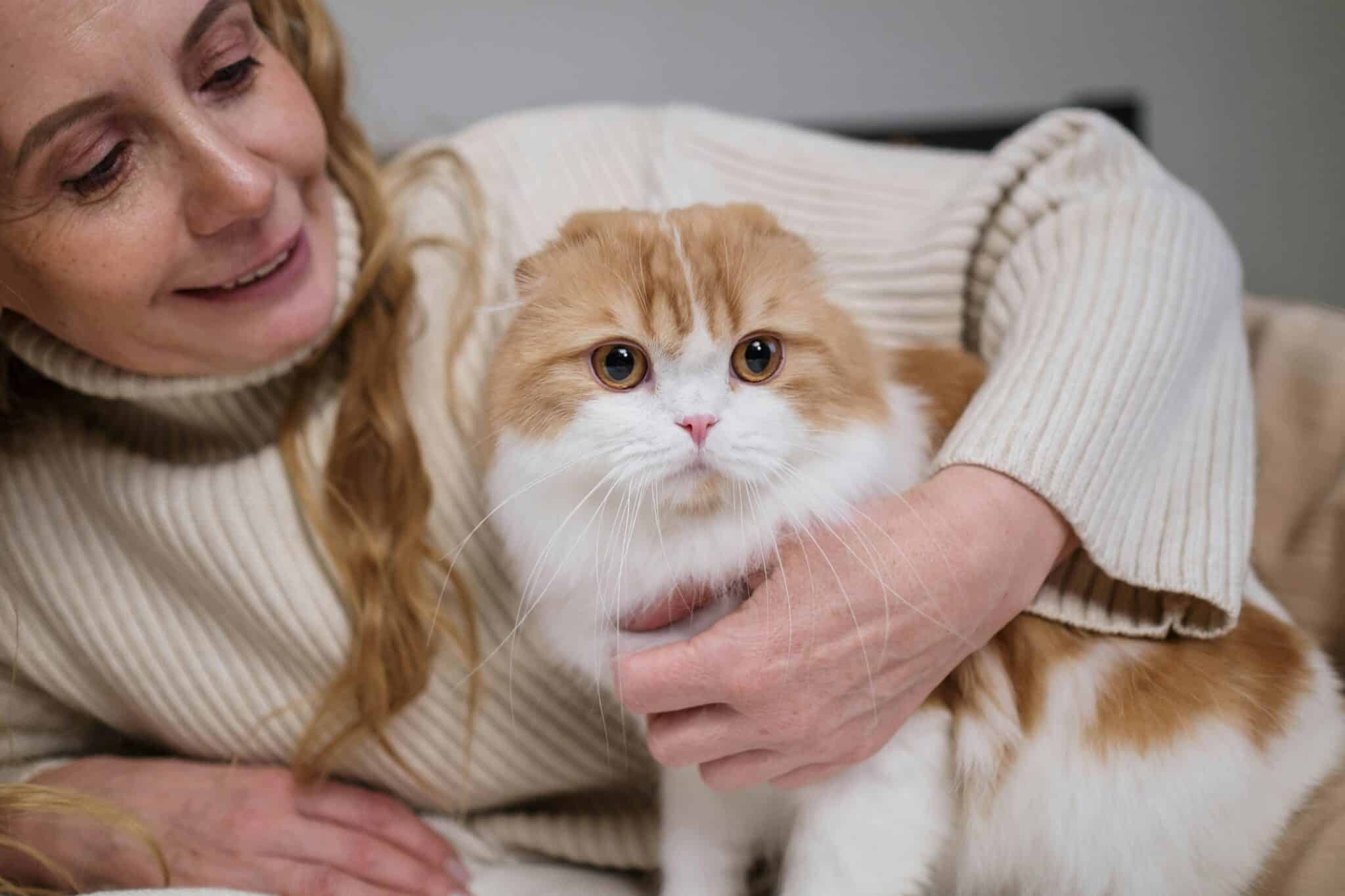Cats are known for being aloof but also for their loving nature, quality cuddles, and roaring purrs when they’re happy. For these reasons, cats tend to make good support animals, especially if you live alone and need a little company. Plus, they’re easier to care for compared to dogs and a lot of other pets, thanks to their inherent independence, so they make great companions.
That said, you might be wondering: Can a cat be an emotional support animal? Sure, they may be cute and comforting, but are they allowed to play the important role of a support animal? The short answer is yes, but there’s a lot to learn about emotional support cats, so read on to learn more.
What Is an Emotional Support Animal (ESA)?
Emotional support animals (ESAs) are animals that provide comfort for people who are struggling with mental health disorders. They’re commonly used for treating symptoms of depression, anxiety, post-traumatic stress disorder (PTSD), and even loneliness. Unlike service animals, emotional support animals don’t have a lot of restrictions when it comes to the type of animal that you can register.
However, the tradeoff is that ESAs don’t have the same protections as service animals. While service dogs are protected under the Americans with Disabilities Act (ADA) and the Air Carrier Access Act (ACAA), ESAs are only protected by the Fair Housing Act (FHA), which means they can’t go in public or travel on airlines without permission. Still, they can live in otherwise non-pet-friendly housing with an ESA letter.
Can a Cat Be an Emotional Support Animal?
Yes, cats can be emotional support animals. In fact, cats make great ESA due to their small size and how easy it is to care for them. Plus, they’re not as noisy as dogs, and you don’t have to worry about them chewing on your television remote.
Most landlords will also give you less grief about cats, even though they have to approve ESAs if they have a letter. For these reasons, cats can definitely be emotional support animals – quite good ones, actually.
Benefits of an Emotional Support Cat

Emotional support cats offer a lot of benefits. When it comes to helping with mental health issues, emotional support cats are perceptive and great at knowing when something is wrong with their favorite human. What’s more, if you build a bond with a cat, they’ll usually encourage you to play, sit on your lap, or make that adorable purring noise that instantly cures loneliness.
Some other benefits of emotional support cats include:
- Help with phobias
- Reducing the risk of panic attacks
- Helping people with autism
- Improving social anxiety when company is over
- Reducing the symptoms of depression
- Assisting with addiction recovery
These are only some of the benefits you’ll notice when working with an emotional support cat, and they can vary based on your unique situation.
How to Get an ESA Letter for Your Emotional Support Cat

To make your cat an emotional support animal, you have to go through a short and simple process, so it’s not exactly as simple as saying that your cat gives you emotional support. Instead, you’ll have to work with a licensed mental health professional and have them write and sign a letter stating that you need an ESA cat, known as an ESA letter.
These letters must come from mental health professionals who are licensed in your state, which can be a hassle when you consider insurance and the cost of therapy. Fortunately, resources like US Service Animals make it easy to register your ESA cat and have an ESA letter written. This is because the platform will help you schedule a call with a licensed mental health professional who has experience with ESA letters in your state.
All you need is some information about yourself, information about your cat, and some time for a phone call.
Do You Have to Register an Emotional Support Cat?
No, you don’t have to register an emotional support animal. As long as you have an ESA letter from a licensed mental health professional, you’re all set. That said, you can always register your ESA and get vests or other types of clothing (if they’ll wear it) to really give them that ESA identity.
So, Can a Cat Be an Emotional Support Animal?
Overall, yes, cats can be emotional support animals, and you’ll find that they’re some of the best. Thanks to their small size, they’re great for most housing situations, and you don’t have to worry about training them or keeping them quiet because cats often keep to themselves, don’t go outside, and don’t bother your neighbors.
If you’re considering an ESA cat, take some time to schedule a call with a licensed mental health professional and see if you qualify.
















